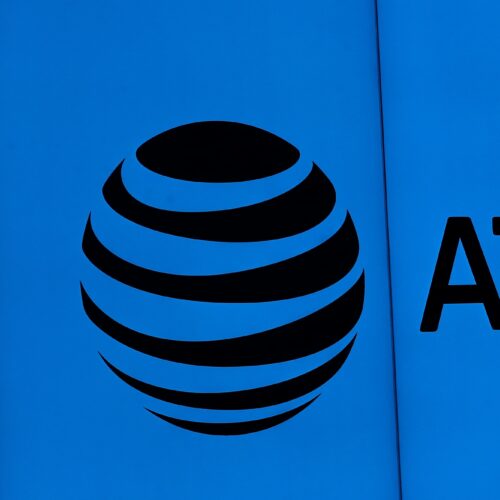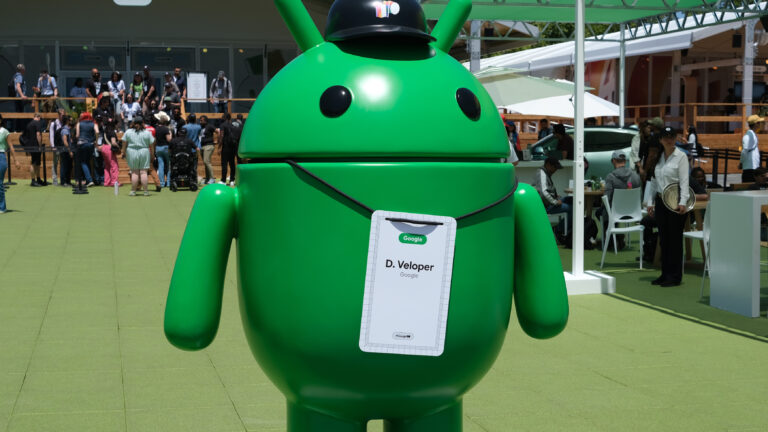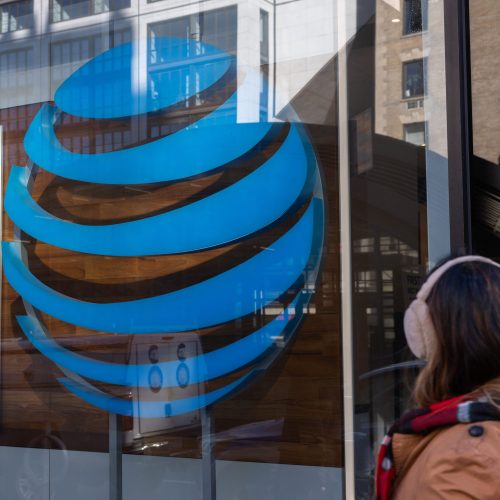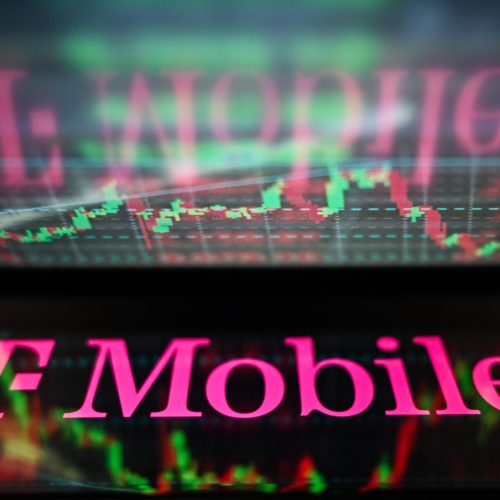EchoStar selling spectrum to AT&T after FCC threatened to revoke licenses.
AT&T’s logo at its corporate headquarters in Dallas, Texas. Credit: Getty Images | Ronald Martinez
EchoStar has agreed to sell $23 billion worth of spectrum licenses to AT&T in a deal spurred by threats made by the Federal Communications Commission to revoke EchoStar’s rights to use the spectrum. AT&T said it will use the spectrum to boost its 5G mobile network and expand its fixed wireless home Internet service.
The AT&T/EchoStar deal, which is expected to be completed in mid-2026, could mark the beginning of EchoStar’s spectrum portfolio being carved up and sold to other carriers. Starlink operator SpaceX has sought access to some of EchoStar’s spectrum, alleging that the company isn’t putting it to good use.
An EchoStar announcement today said, “EchoStar has entered into a definitive agreement with AT&T to sell the company’s 3.45 GHz and 600 MHz spectrum licenses—a total of 50 MHz of nationwide spectrum—for approximately $23 billion, subject to regulatory approval. In addition, the companies have amended their network services agreement to create a hybrid mobile network operator (MNO) relationship. This transaction is part of EchoStar’s ongoing efforts to resolve the Federal Communications Commission’s (FCC) inquiries.”
AT&T’s deal announcement said the spectrum “licenses cover virtually every market across the US—over 400 markets in total—significantly strengthening AT&T’s low-band and mid-band spectrum holdings.” The 50 MHz of nationwide spectrum includes about 30 MHz in the 3.45 GHz band and 20 MHz in the 600 MHz band.
In May, FCC Chairman Brendan Carr threatened to revoke EchoStar spectrum licenses. Carr directed FCC staff to investigate EchoStar’s compliance with network construction deadlines and criticized a 2024 FCC decision to grant a deadline extension.
FCC threat drew widespread backlash
Carr’s move came several weeks after SpaceX alleged that EchoStar subsidiary Dish Network “barely uses” its spectrum and urged the FCC to make the spectrum available to other carriers. President Trump later met with Carr and EchoStar Chairman Charlie Ergen, and that “meeting concluded with the president encouraging Carr and Ergen to work together and reach some kind of deal,” Bloomberg reported in June.
The FCC’s threat drew widespread backlash from across the political spectrum. The conservative Free State Foundation told the FCC that the move would create “regulatory uncertainty” for carriers, while consumer advocacy groups warned it would harm competition and wireless users.
The AT&T/EchoStar deal was “inevitable in light of Chairman Carr’s determination that immediate intensity of spectrum use should trump concerns about competition and consumer welfare,” Harold Feld, senior VP of consumer advocacy group Public Knowledge, told Ars. “We can only hope that the FCC will take steps to facilitate competition in other ways, such as adopting mandatory roaming requirements and mandatory cell-phone unlocking.”
Michael Calabrese of New America’s Open Technology Institute told Ars that “the elimination of EchoStar as a facilities-based competitor is a very bad day for consumers.” But he said there’s a silver lining as EchoStar will avoid bankruptcy and continue to provide service. “Although it will be dependent on wholesale access to AT&T’s network, its Boost brand can leverage the company’s own 5G core, control customer relationships, and quite possibly offer better and more affordable service to millions,” Calabrese said.
The EchoStar spectrum that SpaceX wants is still available, industry analyst Walter Piecyk pointed out today. SpaceX has been seeking access to spectrum in the 2 GHz band.
SpaceX told the FCC in April that “the 2 GHz band remains ripe for sharing among next-generation satellite systems.” EchoStar countered by accusing SpaceX of making “another land grab for even more free spectrum.”
Big 3 oligopoly gets stronger
Today, Ergen said that EchoStar met its FCC obligations—but chose to sell the spectrum anyway. The company “met all of the FCC’s network buildout milestones,” Ergen said. “However, this spectrum sale to AT&T and hybrid MNO [Mobile Network Operator] agreement are critical steps toward resolving the FCC’s spectrum utilization concerns.”
During the first Trump administration, the Justice Department tried to help Dish Network become a viable competitor in the mobile market. When the DOJ approved T-Mobile’s 2020 purchase of Sprint, it required the companies to sell Dish spectrum licenses, wholesale network access, and Sprint’s prepaid business, including subsidiaries Boost Mobile and Virgin Mobile.
EchoStar bought Dish Network in December 2023 and offers wireless service under the Boost Mobile brand. Now that it is selling off spectrum, EchoStar said it will rely on AT&T towers to provide service through a wholesale agreement. Boost Mobile also offers service over T-Mobile’s network.
“Through Boost Mobile’s hybrid MNO infrastructure, subscribers will continue to receive service from Boost Mobile’s cloud-native 5G core connected to AT&T’s leading nationwide network,” the company said. “While primary connectivity will be provided by AT&T’s towers, Boost Mobile subscribers will continue to have access to the T-Mobile network. Customers will experience no interruptions to service. As a result of this transaction, elements of Boost Mobile’s radio access network (RAN) will be decommissioned over time.”
With EchoStar scaling back its own network and relying more on wholesale agreements, the dominant position of AT&T, T-Mobile, and Verizon will be further entrenched. Even Trump’s Department of Justice has called the three carriers’ dominance an oligopoly.
The DOJ Antitrust Division last month decided to let T-Mobile complete an acquisition of US Cellular’s wireless operations, despite Assistant Attorney General Gail Slater stating that the deal and related transactions “will consolidate yet more spectrum in the Big 3’s oligopoly, which controls more than 80 percent of the mobile wireless spectrum in the country.”
Jon is a Senior IT Reporter for Ars Technica. He covers the telecom industry, Federal Communications Commission rulemakings, broadband consumer affairs, court cases, and government regulation of the tech industry.






